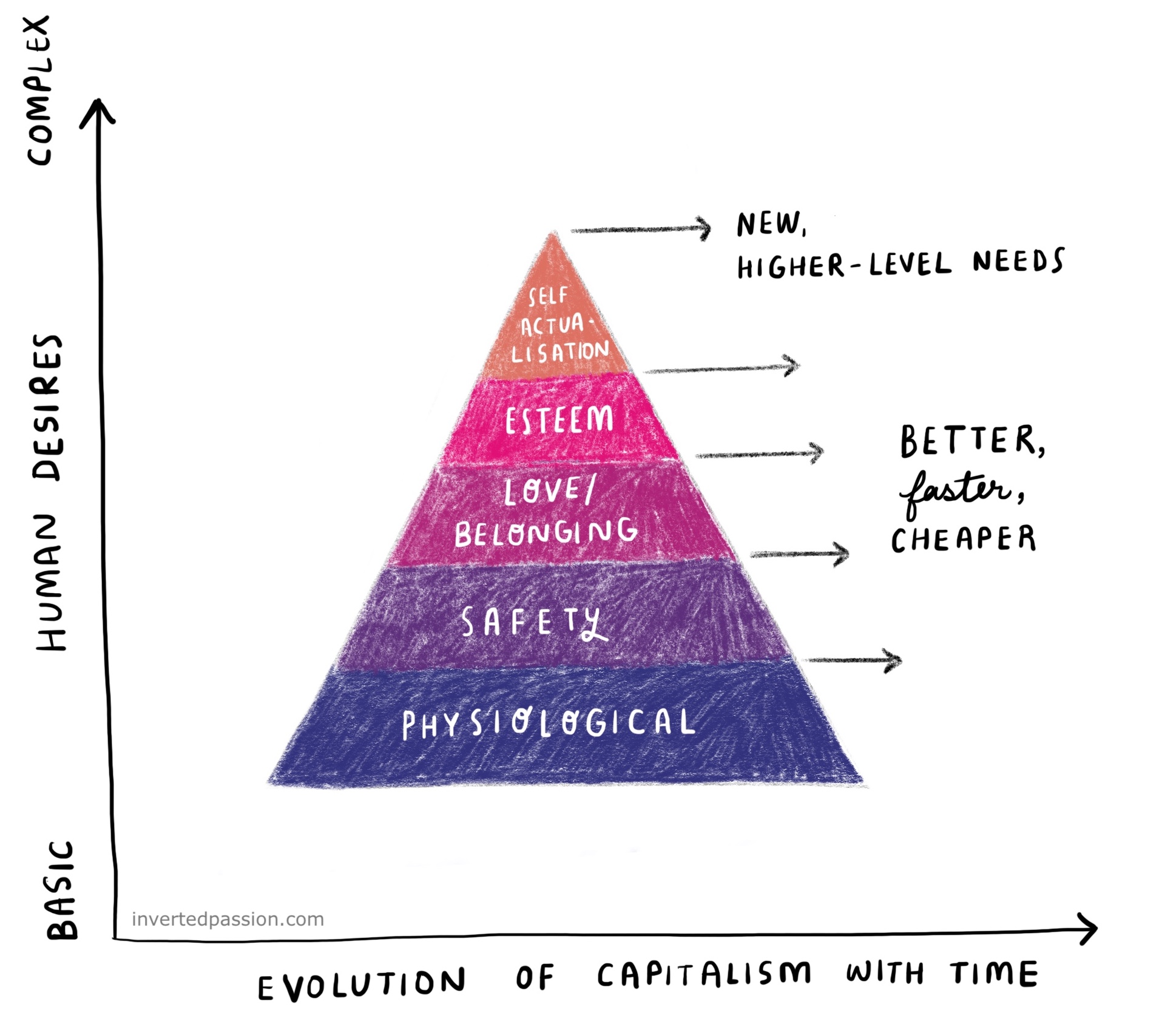Human desires have been shaped by millions of years of evolutionary programming and therefore haven’t changed much during the course of history. In fact, the most fundamental desires of food, sex, health and security have remained the same as they were for our hunter-gatherer ancestors.

Sure, as culture evolves, new derivative desires emerge to help fulfil our basic desires in a better way. For example, the desire for transportation is derived from the desire for doing business with far flung areas which in turn is derived from the desire for profit which itself is derived from our desire to feel safe by hoarding resources for the rainy days.
You see, there’s always a hierarchy of desires and no matter how novel a desire may appear (say the desire to livestream on Youtube), it ultimately is in service of a fundamental desire that’s shaped by evolution (to be entertaining or appear desirable for improving status and prestige).
Startups succeed because people are forever looking to fulfil their desires better than before. We are perennially dissatisfied and capitalism is a system that continuously tries to satisfy us through technology and creativity.
Throughout history, our basic desires have remained the same but because we have always been welcoming of better ways to fulfil those desires, things have become faster, cheaper, more entertaining, of higher quality, while taking less time and effort.
This basic idea of what remains the same and what changes is captured well by Jeff Bezos in his 2016 letter to Amazon shareholders:
“Customers are always beautifully, wonderfully dissatisfied, even when they report being happy and business is great. Even when they don’t yet know it, customers want something better, and your desire to delight customers will drive you to invent on their behalf.”
Jeff Bezos, 2016 letter to Amazon (emphasis is mine)
A similar insight comes from his answer to what will change in the next 10 years, to which he replied:
“I very frequently get the question: ‘What’s going to change in the next 10 years?’ And that is a very interesting question; it’s a very common one. I almost never get the question: ‘What’s not going to change in the next 10 years?’ And I submit to you that that second question is actually the more important of the two — because you can build a business strategy around the things that are stable in time. … [I]n our retail business, we know that customers want low prices, and I know that’s going to be true 10 years from now. They want fast delivery; they want vast selection”
Jeff Bezos, 2016 letter to Amazon (emphasis is mine)
What fuels capitalism is not the shiny new thing but the old one done in a better way. Our basic desires have remained the same throughout history and the businesses that have succeeded are the ones that have been able to help people fulfil their desires better, faster and cheaper than currently available alternatives.
Remember: always ask yourself what human desire is your business fulfilling and how can you fulfil it better, cheaper and faster than the current alternatives?
This essay is part of my book on mental models for startup founders.
Join 200k followers
Follow @paraschopra